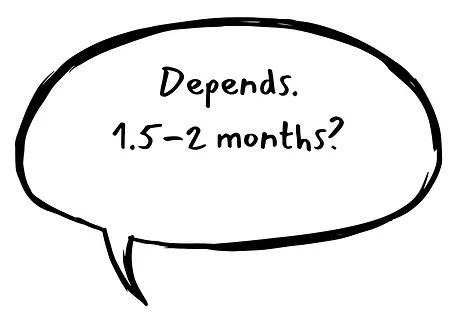Introduction
IELTS Reading is not rocket science. You should not require an awful amount of time to master it, and a little planned effort on your part should do the trick. However, if a person feels that he needs around 6 months to get a simple 7-band overall in IELTS, then the student is inhibited by problems that are more fundamental in nature than simple “tricks and tips”. To tackle any examination, we must:
-
- develop our own competency to the required level.
-
- master the techniques specific to a particular exam through understanding of the concepts and sustained practice over a certain period of time.
Here, we talk about the first point mentioned above. A resource list has been helpfully provided at the end of this article. Please refer to it & you may like to incorporate them in your daily schedule.
Body
“I have barely completed two sections and it is already 60 minutes! But, if I hurry up and attempt all 40 questions, I make more mistakes.”
Sounds familiar? This is as a result of one or more of the following challenges faced by many students.
1. Inability to read quickly
2. Poor retention capacity
3. Ignorance of synonyms & therefore unable to locate the relevant part of the text
Academic IELTS Reading module has 3 passages, each 1500-2000 words in length. Section 3 of the General Training Reading test is also based on one long passage. So, this problem can and do affect both types of candidates.
Quite often, students are unable to wade through a fairly long passage and remember the gist of it. Skimming a passage doesn’t seem to help them. They need to read each word and every line carefully, underlining them if necessary. But this works to your disadvantage. The time allotted won’t be enough if you decide to go through the lines in this manner.
Yet another issue is that after reading the question the student is unable to locate the exact meaning in the passage. IELTS constantly checks whether or not the candidate is capable of understanding a message – verbal and/or written – delivered using a different word arrangement altogether. And as you know, one must always identify first and locate only after that.
Conclusion
There is only one solution for all these problems: more reading. Before even thinking of speed reading, learn to skim a body of words and understand its general meaning. At the same time, become familiar with new words and expressions. Over time you will be able to identify the same meaning worded in another way. The student needs to daily read passages that are carefully chosen from curated books & websites.
Verdict – As things stand, the candidate is not equipped to answer IELTS Reading Part 3 questions. For more on eliminating IELTS Reading Section 3 mistakes, click here.
Afterword
Please below an invaluable reading list. Read a wide variety of subjects ranging from science and environment to history and politics. These articles are packed with interesting nuggets of information. In the process, develop your vocabulary and sentence structures. At the same time, shake hands with rather uncommon phrases that you may not use in your daily life, but will understand when someone uses them.
1. Cambridge IELTS Test Books: 1 to 17: Read the passages only
2. The Conversation: In-depth analysis, research, news and ideas from leading academics and researchers.
4. New Scientist | Science news and science articles from New Scientist
6. Reading | LearnEnglish Teens (britishcouncil.org)
Thank you for bearing with me, dear readers. Hope you have found this somewhat useful. All the best for your IELTS preparation! Remember, excellence is a habit. Make it yours.
